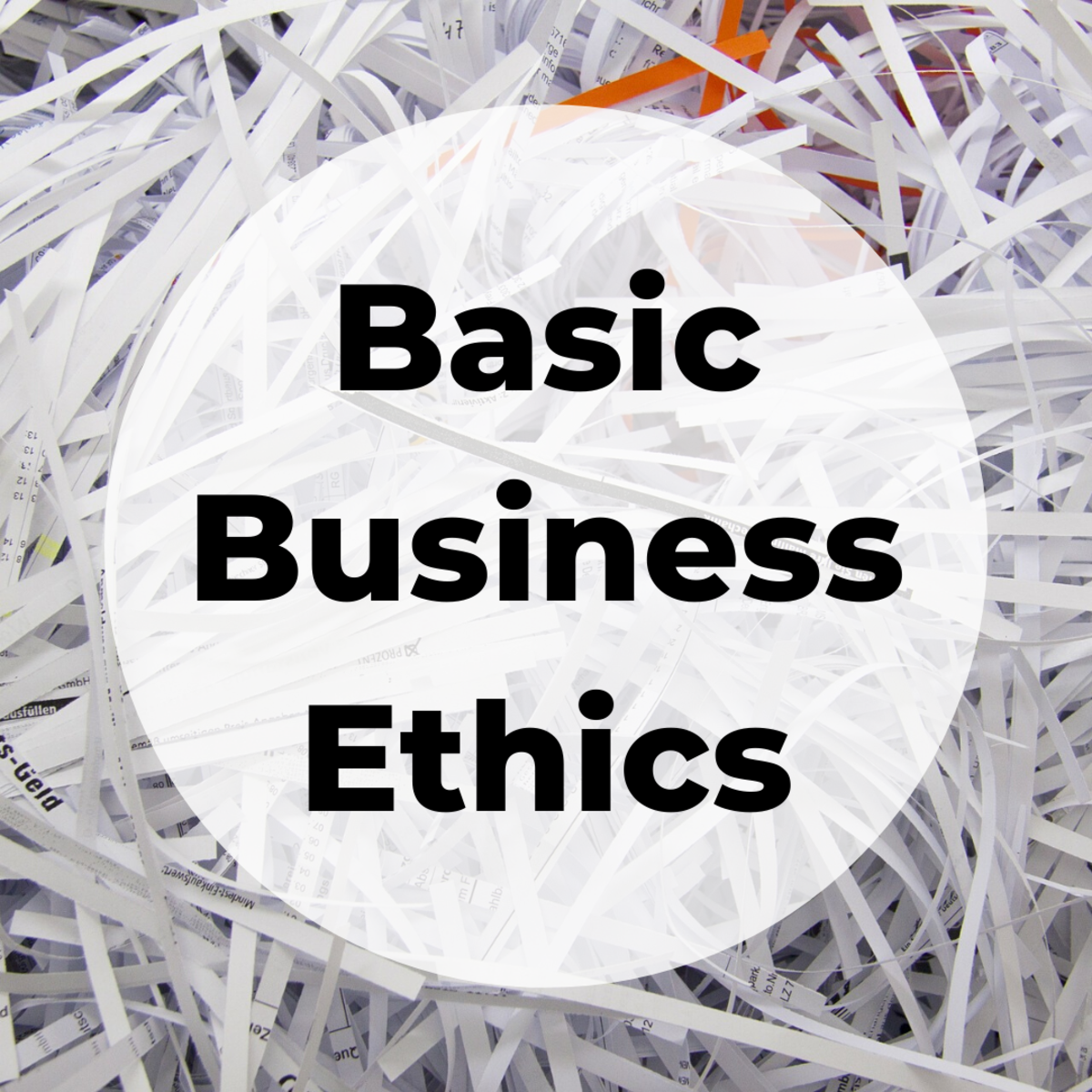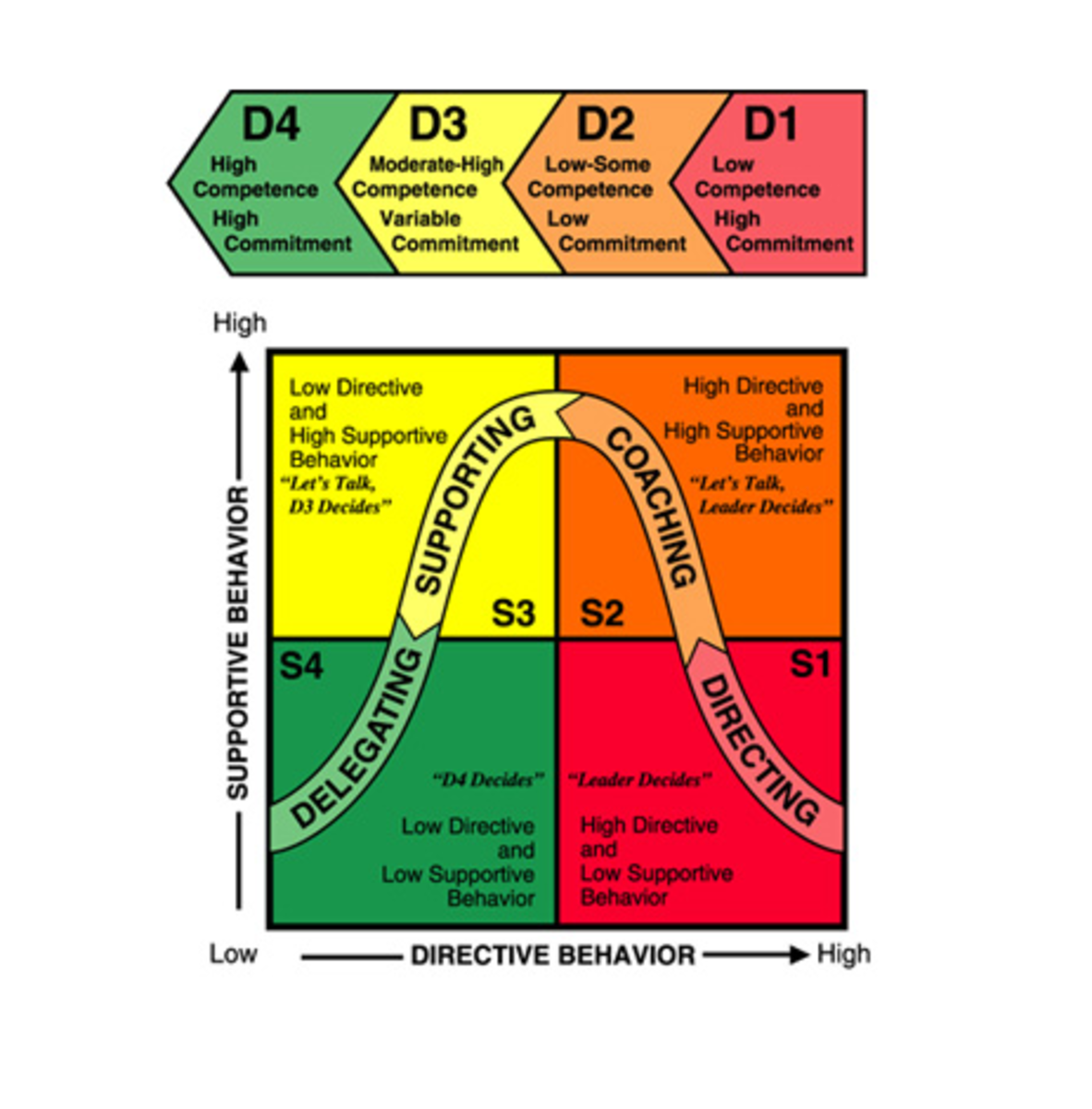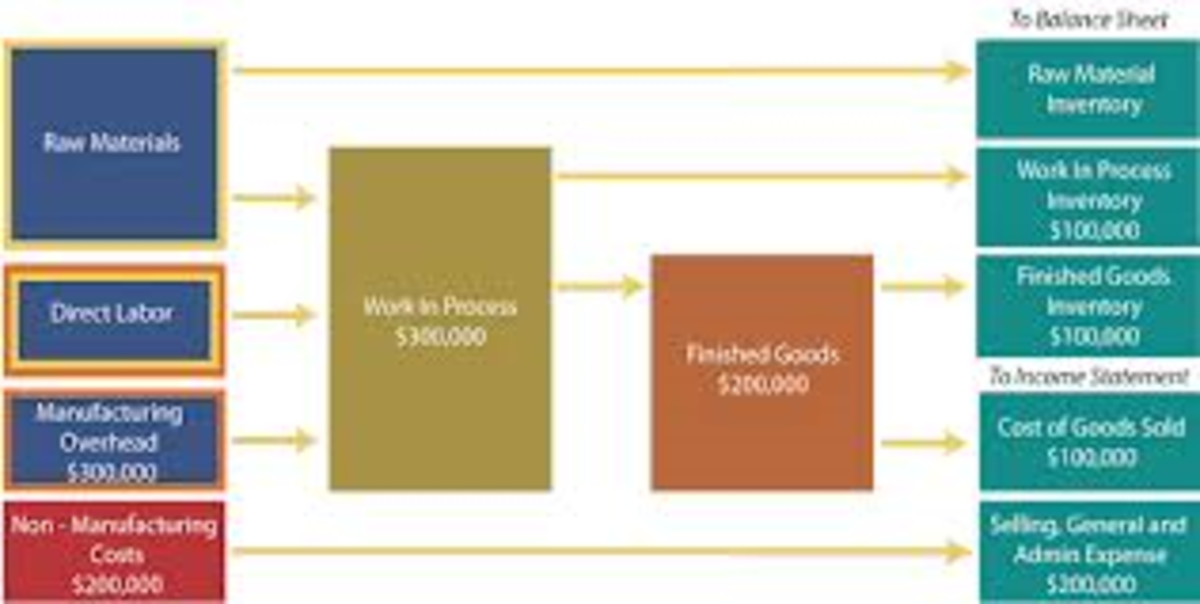A Code of Ethics: Management in Accounting
A Code of Ethics is the key to a successful, long-lasting business. To be an effective manager in accounting, one must have a strong sense of business ethics. In the subject of management in accounting, it is especially crucial to have a strong sense of business ethics due to strict laws and guidelines, as well as regularly scheduled audits.
Accounting Ethics

Management Ethics
Ethics
Ethics are basically the difference between doing what is right and what is wrong. A business's code of ethics typically is a core list of what the organization deems to be most important in terms of its business ethics.

Corporate social responsibility is the way an organization takes responsibility for its business conduct. With today’s media, environmental and human rights advocacy groups are better able to organize their resources and spread negative information. It is important to develop an internal company code of ethics, which can help guide executives and managers in making responsible decisions and provide a framework within which they can operate. It represents how business is to be conducted. For an organization to show it has corporate social responsibility, it should possess a professional code of conduct for its employees.
Externally, the IMA (the Institute of Management Accountants) adopted an ethical code called the Statement of Ethical Professional Practice that describes the ethical responsibilities of management in accounting. It is divided by principles, standards, and a conflict of resolution section. The Code of Ethics for accountants, issued by the International Federation of Accountants (IFAC), governs the activities of all professional accountants and general management in accounting.
Employee fraud is on the rise. Unethical behavior results in losses in time, production, overhead charges, customer respect, and drive. Some examples of unethical behavior include padding labor charges and expense accounts, making personal long distance phone calls, stealing office supplies, and taking bribes. This is why it is crucial to teach employees the proper professional code of conduct at the workplace by having them learn the business's code of ethics.
Ethics for Managers
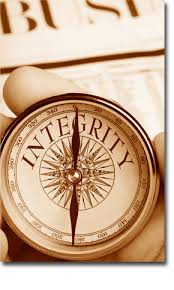
Introduction
Ethics are the set of values, including honesty, integrity, and fairness, principles, and rules to which a person is committed that may or may not be encoded in a normal system of laws or other guidelines, which are applied to corporate behavior. Therefore, it is crucial to hire ethical business associates. These employees should know right from wrong without having to be taught from scratch.
A corporation's ethical behavior affects internal stakeholder issues, such as product quality, customer satisfaction, employee wages and benefits, the local community, and the environment, all things a company can influence through its business ethics. Ethical values provide the foundation on which civilized society exists. Without that foundation, civilization would collapse.
An accountant must be skilled at implementing moral judgments so that he or she can consider the welfare of those affected by his or her actions. Being effective in management in accounting, supervisors and managers can effect the welfare of his or her ethics. Supervisors and managers can illustrate ethics through their example and their teachings. Thus, along with a strong company code of ethics, observing one's supervisor or manager can produce ethical behavior.
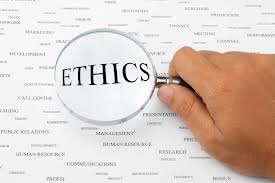
Accounting Ethics
Accounting Code of Ethics
Management accountants are in a strong position to ensure that a company’s strategy reinforces and reflects its ethical aspirations. Management in accounting should contribute to managing employees’ business performance beyond their daily professional work. They need to embed their own values in all aspects of their operations. Accountants bring their own personal codes of ethics with them into an organization.
Difficult issues may arise when the employee’s personal code of ethics prohibits certain types of ethical behavior that are legal, socially acceptable, professionally acceptable, and acceptable to the organization. Potential for conflicts in such situations arise when the action that is unacceptable to the employee is desirable to the organization. Working for an organization may require that the person do things he or she finds unacceptable. The employee may choose not to work for the organization depending on what he or she deems to be as important, immoral, or unethical. The values of employees direct their moral compass. Accountants can appreciate that ethical skills require an exacting balance.
Management in accounting should focus on calling individuals to excellence. By presenting the importance of high ethical standards and by teaching the importance of personal integrity, an accountant is summoned to his or her nobility. The utilitarian view of ethics states that the rightness or wrongness of an action is determined by its consequences.

Business Ethics
Implementing Ethics
Internally, there are many ways an organization can demonstrate ethics. To implement environmental control, the organization should produce technology that reduces the amount of pollutants that its manufacturing processes produce. For employee education and training, an organization must prepare its employees to perform well through proper training. They can manufacture a product line that is safe and reliable with high quality. In marketing, the organization should be truthful in advertising its product. Language, graphics, and document design can be ethical or manipulative. Persuasion and gaining compliance, activities at the heart of business and organizational life, can be done with respect or contempt for customers, employees, and vendors. A code of ethics provide the groundwork for implementing ethics. The ethical code should be known to everyone in order to maintain a professional code of conduct throughout the organization.

Social Responsibility
A commitment to high standards of business ethics involves the management of non-financial aspects of performance. This can encompass corporate social responsibility. Corporate social responsibility is the way the organization takes responsibility for its business conduct and the impact of the operations beyond a concern for the bottom line. It is a concept whereby organizations consider the needs of all its stakeholders when making their decisions. A company’s social performance can impact its financial performance.
The corporate social responsibility is the idea that corporations should act ethically and be accountable to society for its actions. Along with a corporate social responsibility, corporations have an internal corporate responsibility. Employees who take pride in their company’s ethical standards reflect pride in their company’s assets. Employees who are treated with dignity and respect, who take pride in their organization and its ethics, tend to respect the organization. One of the most evident indicators of the employees’ opinions of their organization is their behavior on the job. Those who respect their company are more likely to exhibit ethical behavior and illustrate a professional code of conduct that is reflected to others in the organization.
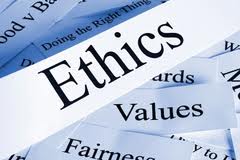
Basic Ethics
Developing Ethics
It is important to develop a company's code of ethics, which can help guide management in accounting in making decisions. By making ethical and legal conduct a top priority, ethical codes and compliance programs help business managers conduct their firms’ affairs responsibility. In order to do this, the following steps may be helpful:
Developing Ethics
|
|---|
1. Elect an ethics leader.
|
2. Identify the company’s core values and any issues that need to be addressed.
|
3. Produce a business code of ethics.
|
4. Make sure the code of ethics is implemented throughout the company.
|

Individuals should develop their own set of ethics by evaluating their actions in light of the consequences that would follow if everyone in society acted in the same way. The minimum standard for ethical business behavior is to comply with the law. A business’s core values reflect those of the entrepreneurs who formed it. Ethical behavior lubricates social and economic systems and makes possible the formation of organizations. Ethics motivate people to exercise self-control that no amount of external controls can match. Company codes of ethics should utilize, promote, and incorporate such ethical motivation to keep it active. Most people want to tell the truth and exert “fair” amounts of effort.

The Results of Ethics
The purpose of ethics in accounting and business is to direct business employees to abide by a code of conduct that facilitates, indeed encourages, public confidence in their products and services. While there are many benefits to following ethics, there are ethical concerns as well. These typically arise in situations where self-interests conflict with a moral duty to do what is right. Individuals are more likely to be productive at work and contribute better to the organization if they are ethical.

Accounting Ethics
The Statement of Ethical Professional Practice of the IMA and IFAC
The accounting profession must restore its reputation. The Institute of Management Accountants (IMA) of the United States has adopted an ethical code called the Statement of Ethical Professional Practice that describes in some detail the ethical responsibilities of management accountants. The profession’s leadership must act to preserve a legacy of honor and integrity for future generations of accountants.
The IMA Ethical code of Professional Practice maintains public confidence in the profession and upholds proper standards of conduct through the observation of the institute’s code of ethics. The IMA Statement of Ethical Professional Practices is divided by principles, standards, and a conflict of resolution section. The principles include honesty, fairness, objectivity, and responsibility. The standards consist of competence, confidentiality, integrity, and credibility. These standards are discussed in detail below.

Competence
Accountants are responsible for enhancing the qualification of higher standards, maintaining a high level of ethics, monitoring, conducting, and regulating, as well as protecting the public from unethical behavior. They must demonstrate professional expertise, abide by laws and regulations, provide relevant information, and behave responsibly.

Confidentiality
Accountants must keep information confidential when information is disclosed, inform relevant parties of all confidential information, and refrain from using confidential information unethically.

Integrity
Accountants are expected to mitigate conflicts of interest, refrain from engaging in any conduct that would prejudice carrying out duties ethically, and abstain from supporting any activity that might descript the accounting profession.

Credibility
An accountant should communicate information fairly and objectively, disclose relevant information, and disclose any delays in timeliness, information, processing, or internal controls.

The Resolution of Ethical Conduct
The Resolution of Ethical Conduct specifies what should be done if an individual finds unethical conduct. It provides sound practical advice. A decision model for resolving ethical issues is as follows:
The Resolution of Ethical Conduct
|
|---|
1. Determine the facts – the who, what, where, when, and how.
|
2. Define the ethical issue.
|
3. Identify major principles and rules
|
4. Specify and compare the ethics and alternatives.
|
5. Assess the consequences of these alternatives.
|
6. Make a decision based on this information.
|
Ethics and Business
The Code of Ethics for accountants, issued by the International Federation of Accountants (IFAC), governs the activities of all professional accountants throughout the world. The code relates to taxes, fees and commissions, advertising and solicitation, the handling of monies, and cross-border activities.
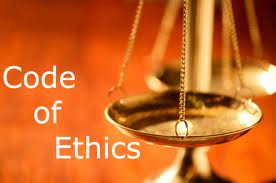
A Business's Code of Ethics
A business’s code of ethics is a non-prescriptive framework within which they can operate. It represents how business is to be conducted. It may cover diverse issues such as anti-competitive practices, bribery, corruption, and environmental pollution. It supports a business, because it is an integral part of building a culture within the organization. A code of ethics aligns the behaviors of the organizations’ employees and guides them in their day to day decision making. By following the best practice and developing a code based on shared core values in consultation with employees, it can become the glue that cements to the company together. Having a code of ethics is a normal business practice.
One way to avoid ambiguity is to maintain a hierarchical ordering of authority. This means that the organization’s stated code of ethics should not allow any behavior that is either legally or socially unacceptable. Because most professional codes of ethics reflect broad moral imperatives, such as loyalty, discretions, and competence, an organization would create public relations problems for itself if its stated code of ethics conflicted with a professional code of ethics.
If unethical behavior occurs or if employees are told to act unethically, they should stand up and report to the Human Relations Department. Professionally qualified accountants are differentiated from non-professionally qualified accountants by their commitment to a code of ethics and by the support given to them by their professional bodies. This may include the IMA Statement of Professional Ethical Conduct or the company’s code of ethics.

Unethical Behavior
Management accountants influence others in a great way. This is why it is especially important for these executives to behave in an ethical manner at all times, and be a good example to others.
Employees may observe management engaging in unethical behavior. An employee may be in the position of drawing attention to the problem by being a whistle-blower, which many have found to be a unique and lonely position. In many instances, whistle-blowers have chosen personal integrity over the loyalty to their organization. The individual should first make sure that the facts are correct and that a conflict does exist between the organization’s stated ethical policy and the actions of its employees in question.
Unethical behavior results in lost time, production, overhead charges, initiative, professionalism, customer respect, reputation, attitude, spirit, and drive. Some examples of unethical behavior include padding labor charges and expense accounts, stealing office supplies, and taking bribes. One of the roles of the financial manager is to transmit financial information to people outside the company. Occasionally the facts that the financial accountant must transmit and explain are not particularly flattering to the company. This presents the dilemma of whether it is unethical to tell a lie.
A goal of a business company should be to increase its owner’s wealth; to do so requires the public’s trust. In the long run, that trust depends on ethical business practices. To regain the trust, the profession must rebuild its reputation on its historical foundation of ethics and integrity.
Business Ethics

Today's Ethics
It is crucial that employers maintain an ethical environment. Often they are not fully monitoring or evaluating their employees. Companies are not approaching employee performance management as systematically as they are with other elements in the business. However, companies are now beginning to realize that employee performance is a serious part of their business that, if not properly managed, can damage their reputation. Employee programs are control systems designed to align employees’ behavior with management’s values. Control systems may include worker surveys, scheduled interactions with open communication, joint interactive ethical training courses, and regular and detailed briefings.
One new program established today is an ethic roadshow. These shows launch codes of ethics, set out the fundamental principles of professional behavior that members must follow, provide information on staying up to date with ethics, and offer a discussion on the code and how it can be best applied. These are all an essential part of members’ professional development. The accounting profession must be forward thinking to ensure that it stays entirely relevant to the commercial world and remain the qualification of choice for employees. It must keep up to date in standards, ethics, monitoring, conduct, and regulation to ensure that members observe and practice ethical behavior.
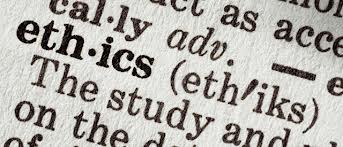
Ethics on the Job
Summary
Ethical behavior is the lubricant that keeps the economy running, and without that lubricant, the economy would operate less efficiently, because less would be available to consumers, quality would be lower, and prices would be higher. Ethical behavior is an important part of an individual’s value system. Organizations should demonstrate ethical behavior in all the facets of their company. This includes corporate social responsibility, which affects environmental and human rights advocacy groups. Companies must also abide by their internal company code of ethics and the IMA’s Statement of Ethical Professional Practice. Unethical behavior is costly and been on the rise over the last few years. It is thus very important that employers strive to maintain a very ethical environment.
Business Resources
- How to Achieve your Goals: Setting Goals and Sample of Life Goals
Learn to set your goals and follow your dreams by turning them into manageable steps that you can accomplish. - Leadership Skills Training: Active, Effective Listening – Part 2
There is more to listening than hearing the words that come out of your employees mouths. When conversations take place, non-verbal cues may be the key. - Leadership Skills Training: Active, Effective Listening – Part 1
There is a differenece between listening and hearing. Active listening can mean the difference between success and failure in a business.
Accounting for Management
IMA Code of Conduct
Ethics in Managerial Accounting
CIMA
IMA
- IMA - Our History
Serving the the financial management and accounting profession since 1919.
AICPA
Code of Ethics
- http://www.accaglobal.com/content/dam/acca/global/PDF-members/2012/2012c/CofEC.pdf
- Understanding the Code of Ethics in the Accounting Profession
The accounting profession offers several opportunities for anyone who is passionate about this particular field, either for monetary compensation or career advancement. However, passing your CPA exam is not the end point in your quest to become a ful
Accounting Code of Ethics
- Basic Accounting Code of Ethics - Life123
Following accounting code of ethics is critical to success in the field. Clients must be able to trust in your work.















